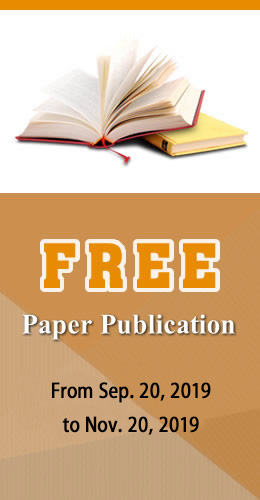Marketing Performance of Dates (Phoenix dactylifera Linn.) Among Retail Traders in North-Western Nigeria
[1]
Obadimu O. O., Department of Forest Economics and Extension, Forestry Research Institute of Nigeria (FRIN), Oyo State, Nigeria.
[2]
Obadimu O. D., Department of Agricultural Economics, University of Ibadan, Oyo State, Nigeria.
This study investigates the marketing performance of Dates among retail traders in North-western Nigeria. A total of seventy (70) questionnaires containing both closed and open ended questions were randomly distributed among the respondents while only sixty-three (63) were retrieved and utilized for the analysis of this study. Data were subjected to descriptive statistics as well as budgetary and regression analysis. The study revealed that the trade is a male dominant business and that the traders’ ages ranges within <30 – 60 years which is within the economically productive years. Western education had little or no effect on their ability to engage in this kind of business because the highest form of education obtained by some (23.81%) of the respondents was primary school. Majority (93.65%) of the respondents were married and maintain large family sizes. The trade is profitable with an annual revenue and Net Income (NI) of N224,386.10 and N217,797.57 respectively, the market is oligopolistic in structure signifying that a few marketers dominate the market. Cost incurred on variable inputs such as transportation, storage and packaging materials significantly determine the revenue and NI of the trade.
Dates (Phoenix dactylifera) Trade, Retailers Annual Sales, Net Income, Gini-coefficient
[1]
Ariyo, O.C., Ariyo, M.O., Awotide, O.G., Okelola, O.E., Asaa, O.S., Olukotun, O., Aaron, A.J. and Adedapo, J.O. 2013: Profitability analysis of small scale mortar and pestle production in Kaduna metropolis, Kaduna State Nigeria. Proceedings of the 36th Annual Conference of the Forestry Association of Nigeria, Uyo, Akwa Ibom State, Nigeria. Nov., 4 – 9 2013, Vol 2, Pp 530 – 540.
[2]
Adeyeye, A.J. and Dittoh, J.S. 1985: Essentials of Agricultural Economics. Impact Publishers Nig. Limited, Ibadan. Pp. 164-182.
[3]
Akinyemi, O. 2006: Economic Botany of Rattan Species in Ogun State, Nigeria. MSc Thesis, University of Agriculture Abeokuta, Ogun State. Pp. 169 – 174.
[4]
Balogun, O.S; Ugwuanyi, C.A.; Akinyemi, A.; Abdusalam, Z. and Balogun, G.F. 2008: Cost and return to small-scale rice processing in Uzo-Uwani Local Government Area of Enugu State. Proceeding of the 42nd Annual Conference. Agricultural Society of Nigeria (ASN). October 19th-23rd 2008 Ebonyi State University, Abakaliki, Pp 969-972.
[5]
Enete, A.A. and Agbugba, I.K. 2007: Chacoal marketing in Abia State. Farm Management Association of Nigeria (Faman) 22nd Annual Conference, 2008 Markurdi. Edited by Umeh J.C., Obinne C.P. and Lawal W. Pp. 338 – 346.
[6]
FAO, 2014: Forest and poverty reduction, Food and Agricultural organization of the United Nations for a world without hunger. FAO Forest Policy Service (FOEP) Viale delle Terme di Caracalla, 00153 Rome, Italy, Pp 1- 2.
[7]
FAO 1992: Population Education and Nutrition Version for Agricultural and Food Marketing Management in the developing countries. Food and Agricultural Organization (2000). Rome, Pp 114-117.
[8]
Keay, R.W.J. 1989: Nigerian Trees. ‘A Revised Version of the Nigerian Trees. Vol. 2, Department of Forest Research, Ibadan Nigeria. Pp. 443 - 444.
[9]
Kudi, T. M., Olukosi, J.O., and Ogungbile, A.O. 2006: Economic Analysis of Sesame Marketing in Jigawa State. Journal of Agriculture, Forestry and the Social sciences (JOAFSS), vol. 4, No 1, 2006, Pp. 22 – 31.
[10]
Momoh, S., Oluwalana, S.A., Dipeolu, A.O. and Somefun, A.A. 1999: Economic Analysis of Trade in rattan (Eremoaphata macrocarpa) and rattan products in Lagos State. Journal of Tropical Forest Resources, vol.15. 1(199). Pp. 40 – 51.
[11]
Obadimu, O.O. 2010: Socio-economic analysis of Date palm (Phoenix dactylifera Linn) in Kaduna and Kano States Nigeria. Unpublished Thesis, University of Agriculture Abeokuta, Ogun State, Nigeria Pp 1 – 133.
[12]
Owen, F. and Jones, R. 1994: Statistics. Fourth Edition Pit man Publishing Longman Group U.K. Ltd. Pp. 404 – 411.
[13]
Pascal L. 2003: The marketing potential of date palm fruits in the European market Raw Materials, Tropical and Horticultural Products Service. Commodities and Trade Division, FAO, working paper No. 6, Viale delleerme di Caracalla, 00100 Rome, Italy or by e-mail to copyright@fao.org. Pp 1 – 18.
[14]
Shackleton, C.M., Shackleton, S.E., Buiten. E. and Bird, N. 2006: The Importance of Dry Woodlands and Forests in Rural Livelihoods and Poverty Alleviation in Southern Africa. Forest Politics and Economics, 9: 558-577.
[15]
Stan, M. 2015: Importance of Retail Marketing In Small Business. Demand Media Heast Newspaper, Houston Chronicle Texas, USA.
[16]
U.N.D.P. 1992: The Importance of Forestry Statistics. Retrieved at http://wwwwaytypolin.com/CFA/doi/abs/10.1505/ifor.8.1.4
[17]
World Bank 2002: Sustaining Forests: A World Bank Strategy. World Bank, Report of the World Summit on Sustainable development. World Bank, Washington, DC.







